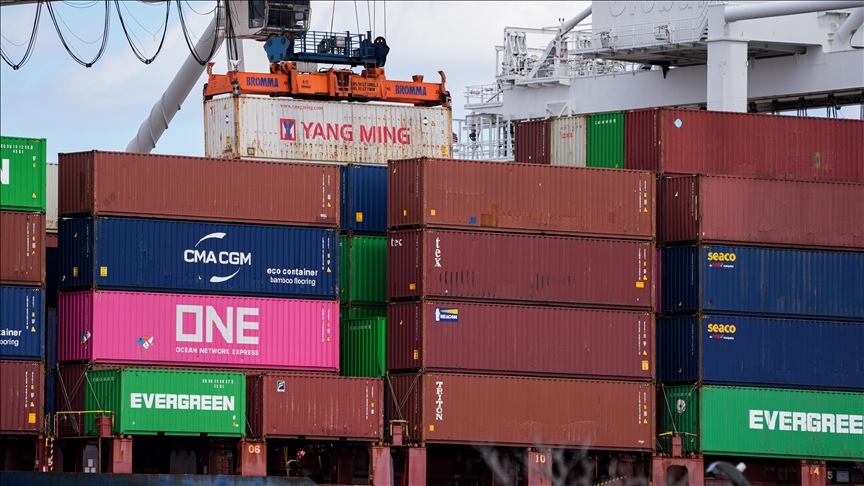Strategic products’ rising importance deepens protectionist trade’s resurgence
Trade globalization goes down as regional economic blocs gain importance amid US protectionism in trade, according to economics professor

ISTANBUL
The global economy is going through structural changes with the rising importance of strategic products bringing protectionist trade tendencies to the fore.
Mercantilist policies are on the rise as of the beginning of this year, in particular with US President Donald Trump’s tariffs and similar steps by other countries causing protectionism to replace free trade -- the rise of protectionist policies is hampering globalization, while regional economic blocs gain more significance.
Analysts say that this trend will lead to more concerns over global growth due to a decline in economic cooperation between countries and further restrictions on trade, despite the expectations of a digitalization, artificial intelligence (AI), and green transformation-induced evolution in the global economic system.
This further evolution would have a chance to change the production and consumption habits, approaches to economic management, and international cooperation models.
Ibrahim Unalmis, a professor of economics and the director of the Financial Research and Implementation Center at Istanbul-based Bahcesehir University, told Anadolu that there are three stages to globalization that have been seen in history.
“Working or starting a business outside of one’s country has become more prevalent due to globalization,” he said.
Unalmis stated that countries, following World War II, focused on making their own industries, as European nations and the US turned to rebuild their economies.
“But by the 1970s, economy began to ‘outgrow their boundaries,’ with technological progress and things like computers entering everyday life -- we began to see more views benefitting foreign trade come out of these developments: the basic idea that countries should produce in areas they are the most efficient in and establish foreign trade relations accordingly,” he noted.
Unalmis mentioned that globalization is not a spontaneous process and countries like the US in particular supported globalization efforts via the World Bank and the IMF to boost prosperity.
He said trade relations around the world have increased since the 1980s but the supply chain security of strategic products has been neglected, highlighted further by Trump’s past statements on industrial nationalization since 2016 and the pandemic in 2019.
“If a country can’t produce chips or source them from abroad, they are forced to halt their production of strategic products in key sectors like defense and communications,” he said, referring to the chip crisis during the pandemic.
Unalmis stated that countries were prompted to encourage trends in domestic strategic products in the face of such crises, while supply chains have been reshaped based on allied countries and geographically close countries, which spells both opportunities and risks for Türkiye.
He said that financial capital in technological sectors grew faster than other sectors with many developments, with previously unknown financial products leading to a disruption in income distribution, favoring those with access to it, while physical capital shifted to developing countries like China with cheaper production, giving rise to unemployment in developed countries.
“Trump is generally at the forefront of politicians who are trying to find a solution but anyone who can think about the economic issues can see that the US’ current situation is unsustainable,” he said.
Unalmis stated that changing the economic policies in the US is not easy, as the country has the world’s largest economy.
“Trump also sees the need for change here but it is unclear if the solution is to have the system turn into a mercantilist structure,” he said. “It’s unlikely to be a sharp turn to mercantilism but we can clearly see countries are more reluctant to establish complementary trade relations with other countries compared to the past.”
Anadolu Agency website contains only a portion of the news stories offered to subscribers in the AA News Broadcasting System (HAS), and in summarized form. Please contact us for subscription options.







